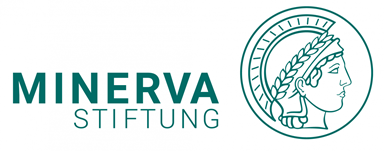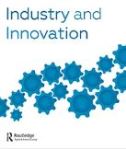Embedded in a background of multi-level crises (e.g. Covid-19, violent-conflict, inflation, climate-change, growing social inequalities), and growing threats to the commons (democratic freedom, human rights, ecological integrity), our call can be considered a response to an urgency for business and HRM to adopt a more societal role and to critically reflect on the impact of HR policies, strategies and practices on wider societal and ecological shared “Common-Good” interests.
While scholarly concepts of and approaches to sustainable HRM are diverse (e.g. Aust et al., 2020), our aim of this conference is to offer an opportunity for international scholars to present and discuss how and when our research can have a real-life impact by making contributions to today’s sustainability challenges as framed through the United Nations’ Sustainable Development Goals (SDGs) and beyond.
We welcome high-quality contributions and work-in-progress submissions across diverse research fields and theoretical backgrounds that could help advance our understanding of how to develop, initiate, implement and sustain a “Common-Good HRM” within the workplace from a broad range of complementary perspectives, e.g. Socio-Economics, Business-Ethics, Organizational studies and Sustainable HRM.
Potential areas of interest include, but are not limited to:
- Defining the purpose and boundaries of different conceptual and empirical manifestations of Sustainable HRM
- Exploring the intended (‘bright side’) and unintended (‘dark side’) of Sustainable HRM
- Exploring the gap between greater sustainability challenges (SDGs) and HRM or employment relations practices
- Contributions of “Common-Good HRM” practices to grand sustainability challenges such as climate change, social inequalities etc.
- Responses to challenges to a “Common-Good HRM” paradigm that materialize in tensions,
contradictions or paradoxes of shareholder and stakeholder, business and society interests. - Mixed-methods approaches to investigating workplace “Common-Good HRM” policy and practices and in capturing respective antecedents and outcomes
- Comparative research into the process and outcomes of determining key issues and policies for “Common-Good HRM” within and between both alternative “purpose-driven” companies and more mainstream organizations.
- How different national and industrial contexts may shape sustainable HRM policy and practice.
Scientific Committee:
- Prof. Ina Aust (LouRIM at UCLouvain, Belgium)
- Prof. Julia Brandl (Universität Innsbruck, Austria)
- Prof. Michael Brookes (SDU, DK)
- Prof. Fang Lee Cooke (Monash University, Australia)
- Prof. Marco Guerci (Università Delgi Studi Di Milano, Italy)
- Prof. Michael Müller-Camen (WU Vienna, Austria)
- Prof. Shuang Ren (Queen’s Management School, UK)
- Prof. Douglas Renwick (Nottingham Trent University, UK)
- Prof. Judith Semeijn (Open Universiteit, NL)
- Prof. Philip Yang (Universität Tübingen, Germany)
- Prof. Geoffrey Wood (Western University, Canada)
Date: 14 & 15 March 2023.
Venue: Online. The online access details will be sent to your email address a few days prior to the event.
Paper Submission: 2 to 31 January 2023.
View the complete CfP here.







